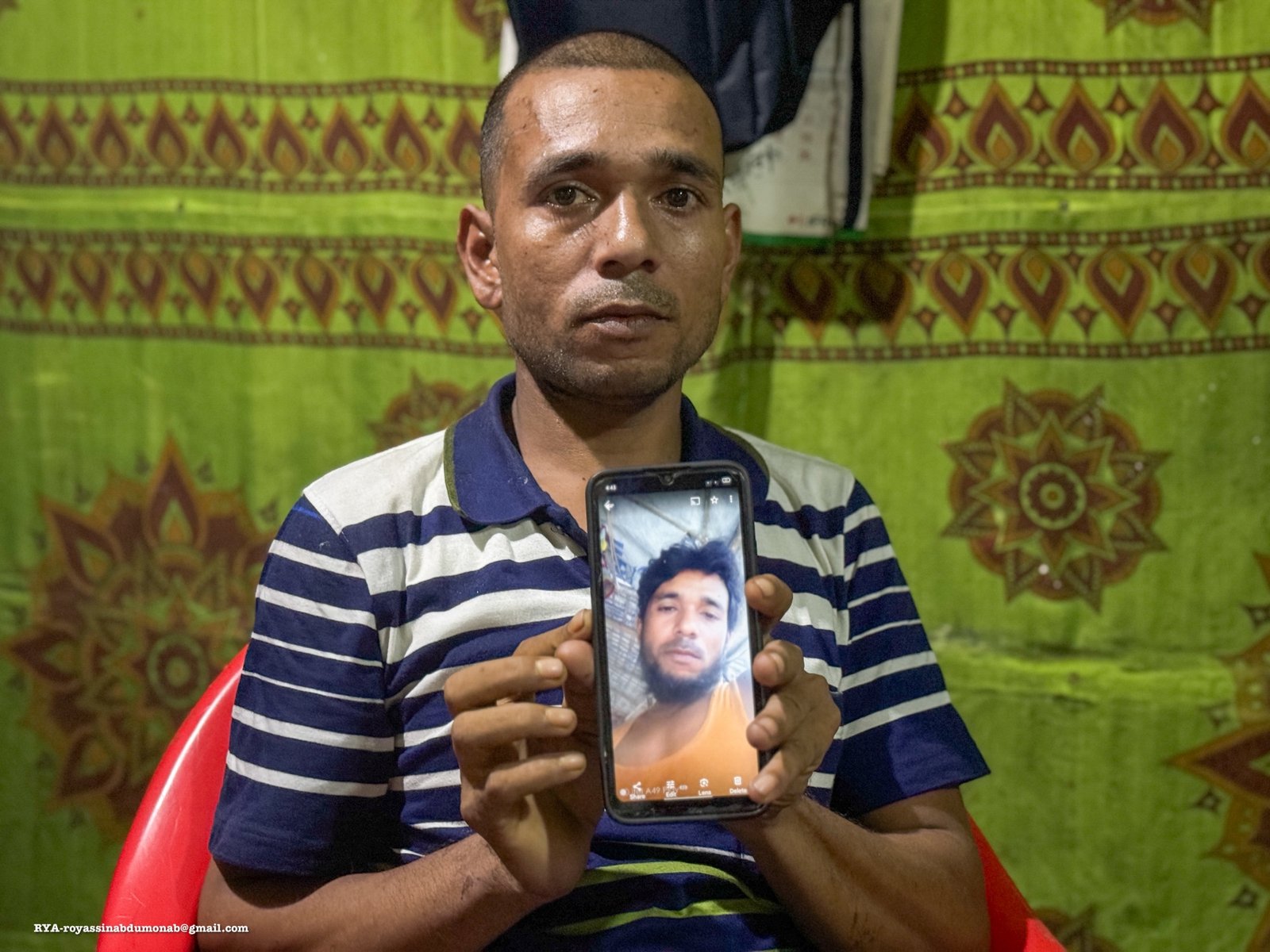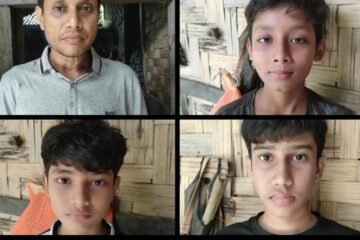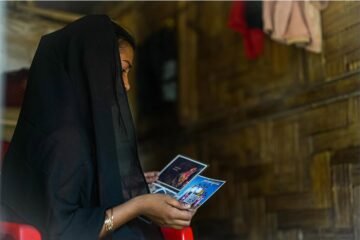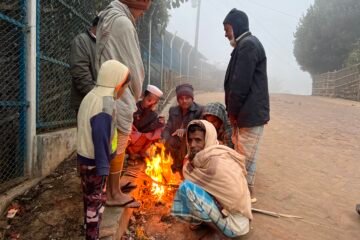- More than 20,000 Rohingyas fled Rakhine state recently due to heavy civil war and taking refuge in Bangladesh but they are surviving here without any supports from aid agencies
- Those who fled recently are mostly children, women, old age people and among of them, many are suffering from chronic diseases and children are facing a lot of seasonal diseases that make their lives horrible without the proper medical care.
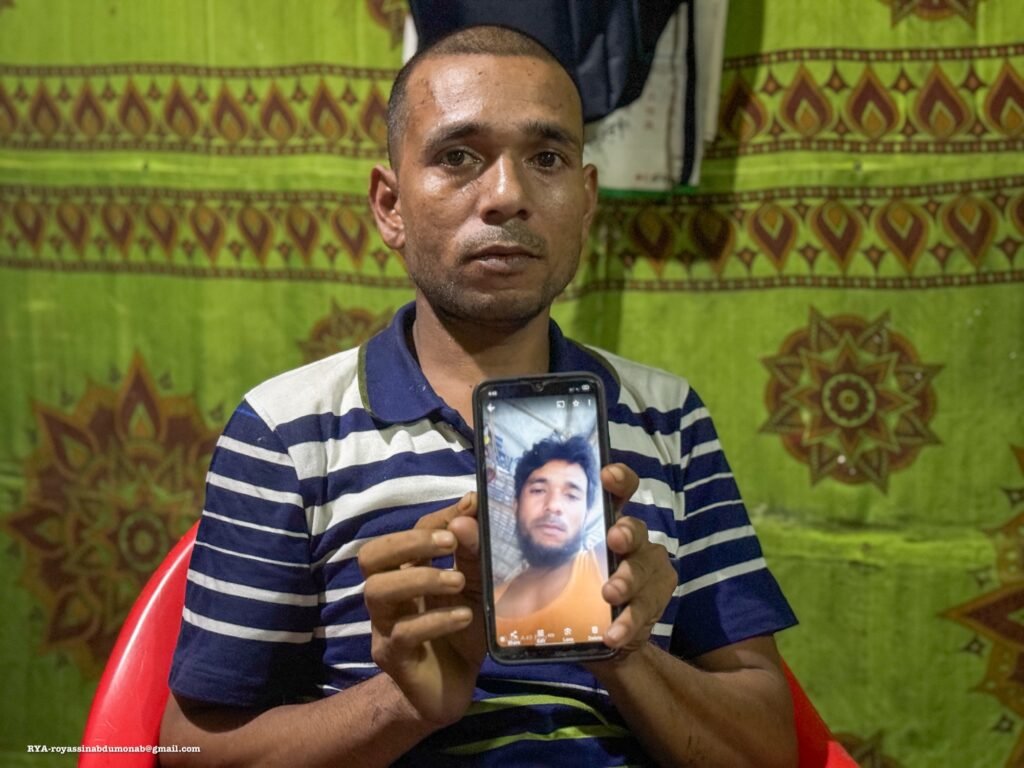
Muhammad Ayub, a 35-year-old man from Hawarbil, Maungdaw, was abducted by the Arakan Army (AA). The incident took place on the morning of July 7, 2024, when the Arakan Army entered our village. They gathered all the villagers in one place, separating us into two groups: men, and women with children. We asked why they had brought us there, and they responded that two members of the Arakan Army had been killed. We told them we knew nothing about these deaths.
They tied our hands behind our backs with ropes. There were nearly 470 people gathered, including women, all of whom were tied. The AA made a list of us and took photos of groups of five people bound together. We were kept under a tamarind tree until 9:30 a.m.
Afterward, they beat us severely and moved us to a large compound. Later, we were taken to a school, where they said we would be released the next day, despite heavy rain. They divided us into six classrooms at the school and formed five groups of AA members who continued to beat us. This beating lasted for five continuous days without food or water, even though some of us were over 70 years old, and some were as young as 15.
On the evening of July 13, they finally provided us with food. We remained in the school for 14 days. After that, they released 53 people who were either severely injured or elderly. At that point, 87 of us remained. They stopped beating us, provided food taken from our homes, and allowed us to eat twice a day, at 10 a.m. and 5 p.m., brought by children from the village.
We were detained in the school for 35 days. One night, the village administrator, Ekaram Ullah, visited us and returned the phones that had been taken from us. The names of AA members from our village of Hawarbil included Zaw Min Najng, Basein, Kofi, Mawre, and Seebong.
Around 9 p.m., a man named Ahyaw arrived and listed us again, separating nine of us from the group of 87. The AA told those who were released that the nine of us would be released in the coming days. They tied our limbs, masked us, and took us by truck to the AA base, known as Four Miles Station. At this base, which had a helicopter field, they stripped us of our clothes and beat each of us with sticks, 30 times per person. Some people lost consciousness during the beatings.
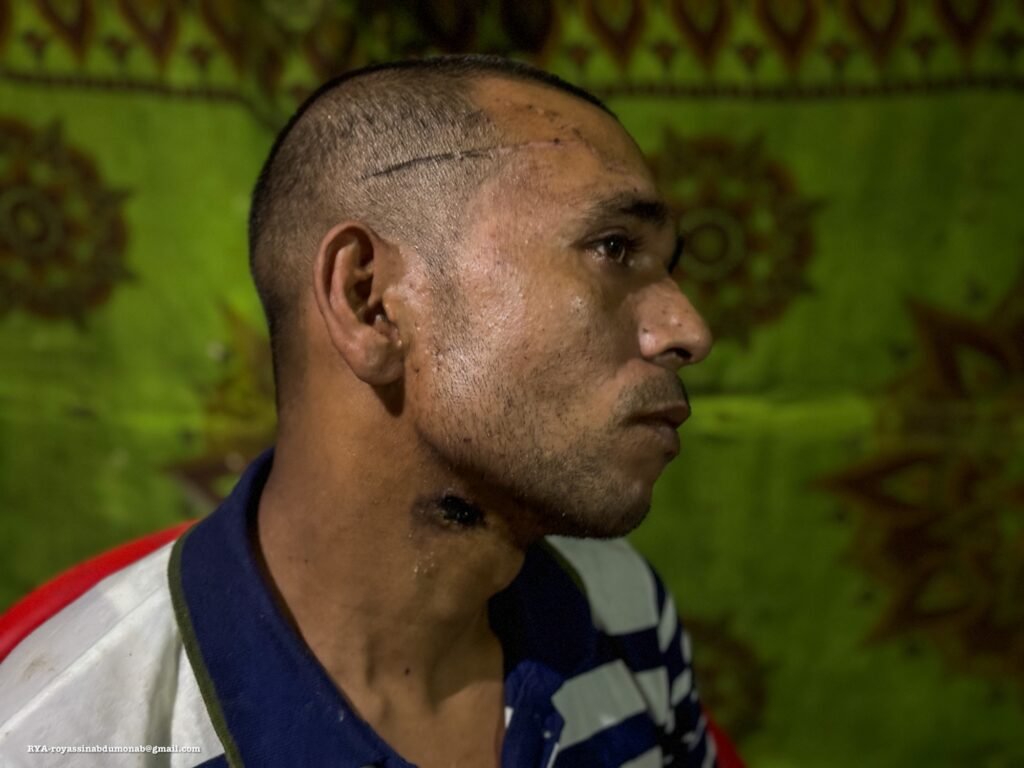
When Ahyaw asked why we were being beaten, the AA members said it was an initiation punishment for being held in custody. After Ahyaw left, the AA members beat us again, using the slur “Kalar,” a derogatory term used for Muslims in Myanmar. One of the educated men among us asked why they kept beating us, and the AA members responded that we were “Bengali Kalar.”
They then took three of us aside at different times and asked why we cooperated with the military junta. We told them we had no involvement with the junta and asked them to verify this with their own AA members who knew us. Despite this, they accused us of being involved in armed group activities and claimed we had a role in the deaths of their members. They placed chain cuffs on our legs and locked us all in a room. Half an hour later, they checked our bags and allowed us to put on clothes. We were held in that room for nine days, forced to use a large drum as a toilet and sleep in the same space.
After those nine days, they moved us to a larger room, where 170 Muslim detainees were held. The following day, Ahyaw visited and told us they would separate us into “good” and “bad” groups. On the 15th day, they took each person to another room and beat them severely, even removing nails from hands and feet.
On the 18th day, they cleaned the room, and the higher authorities arrived the next day. They released 53 women and children, of which 35 were Muslim. These individuals were taken to the Four Forestry Office around 6 p.m., where the 170 people were held together in one room. At around 8:30 p.m., the AA brought seven members of the military junta, placed them in an open field, and beat them brutally.
He says, “Every day they used to step on us with their boots, burn parts of our bodies, and they forcibly removed my beard with tools. They did whatever they wanted to us. We were falsely accused of being involved with armed groups and the military junta, and we were detained without cause for several days. They gave us just a cup of rice twice a day. Many people died from lack of food and medical care. In front of me, I saw three people die due to starvation and neglect.”
On the 19th day (September 9, 2024), at around 10 p.m., a military jet attacked the area. There were 170 people in one room, along with the seven junta members. Other people might have been in the AA compound as well. The jet dropped two bombs, scattering people everywhere. I escaped with three others during the explosion. In total, six bombs were dropped. Shortly after the attack, AA members arrived in vehicles and ordered everyone not to move or attempt to escape. People regrouped.
The four of us managed to escape to a Muslim village during the chaos, but the village was empty. We then headed to Wehtali village. Two of the group were from Shairapara, and they returned to their village. The rest of us made our way toward Bangladesh. Later, we learned that 53 people had been killed in the attack.
“The junta forces carried out airstrikes on 2nd border guard police battalion (NaKhaKha-2) in 4-mile of Maungdaw town, which was occupied by the Arakan Army (AA) fighters. The attack, conducted by two jet fighters, resulted in the death of more than 50 people, including prisoners of war and civilian inmates, with many others injured.
According to a statement issued by the AA, two airstrikes were conducted by jet fighters on 9 September at around 9:30 pm. The casualties included prisoners of war and civilian inmates temporarily detained at NaKhaKha-2 base in Arakan State”, By Narinjara News
He added that he had never been involved in any activities with armed groups or the military junta, yet they were abducted without any reason.
Note : Please search on Google about this incident and publications of media that happened on 9th September 2024
